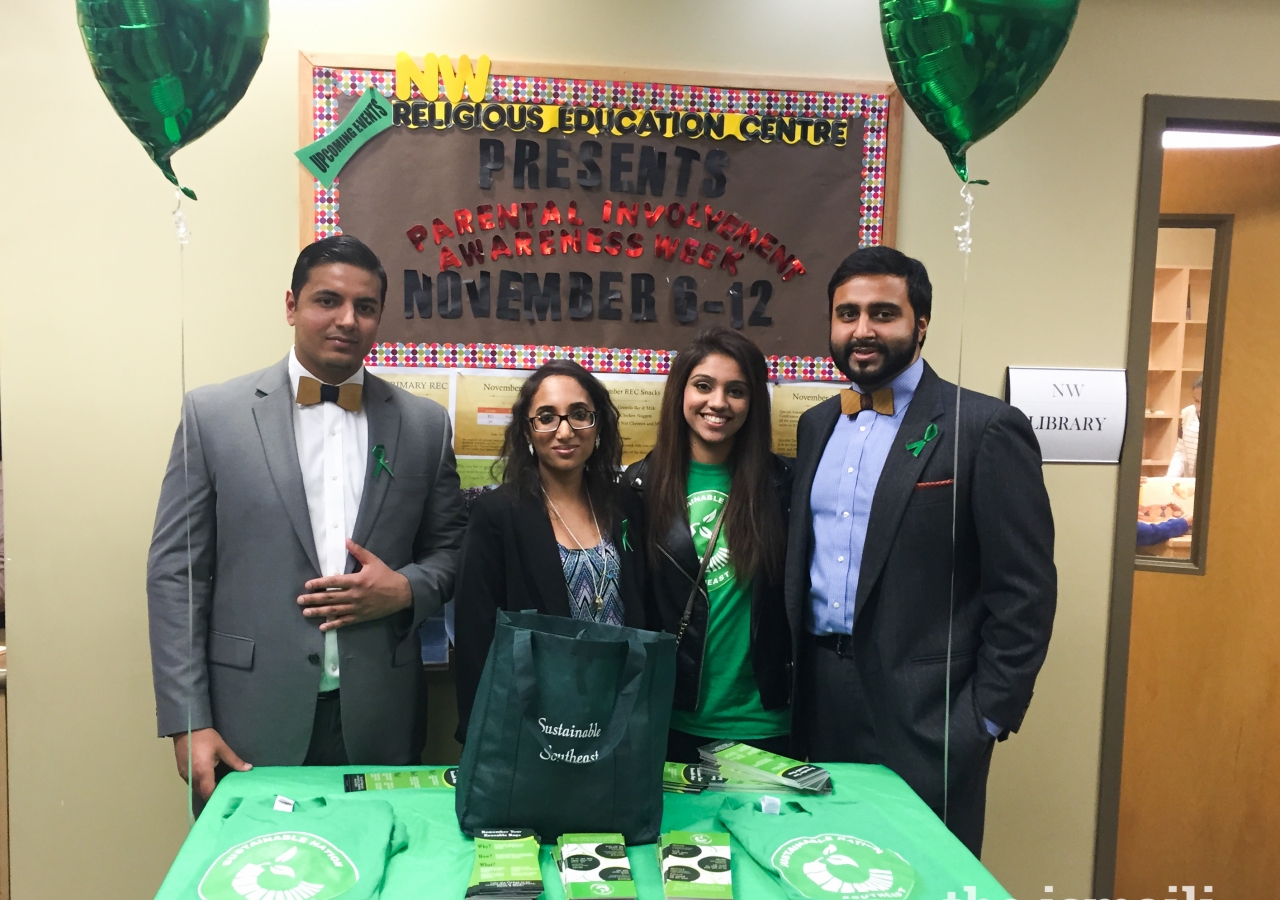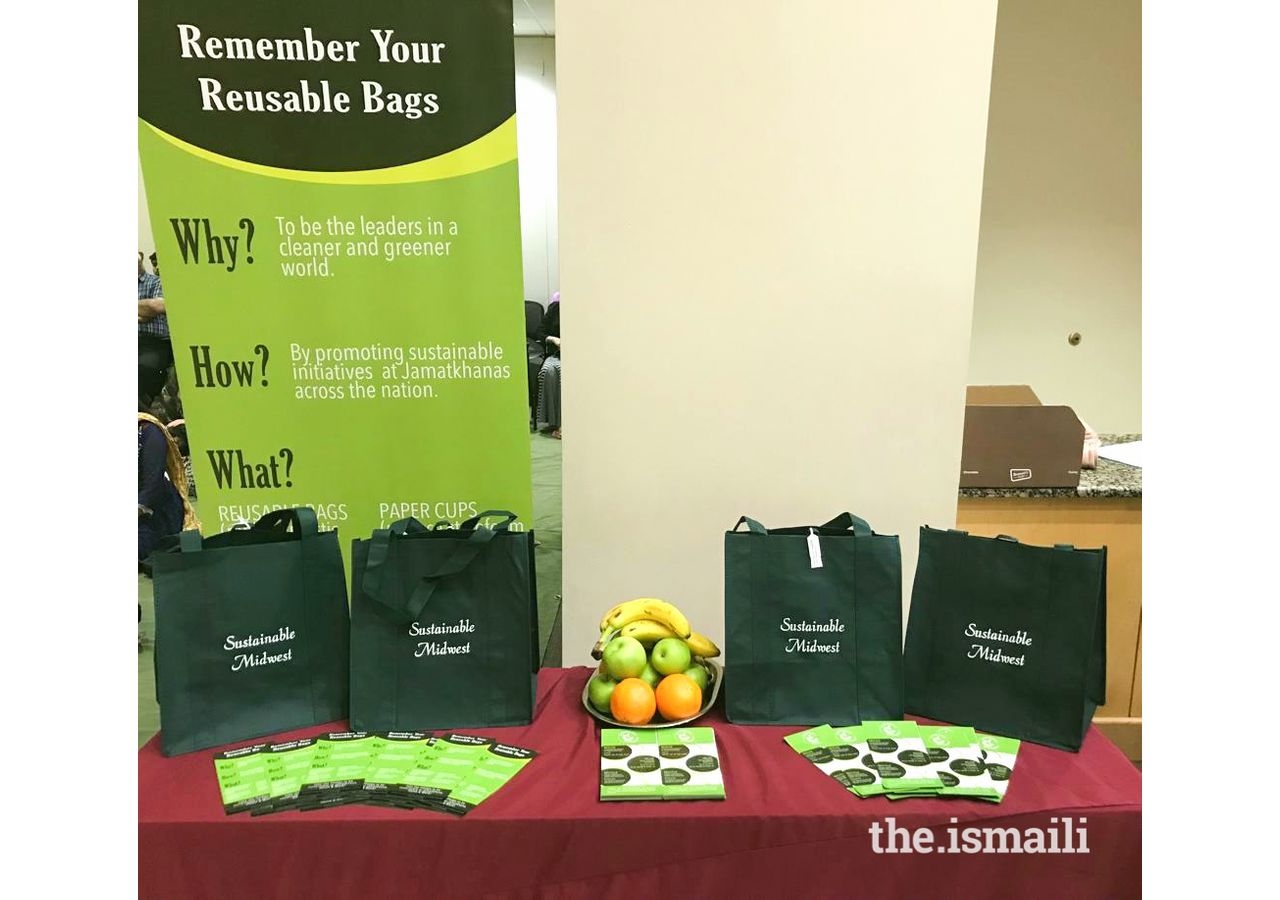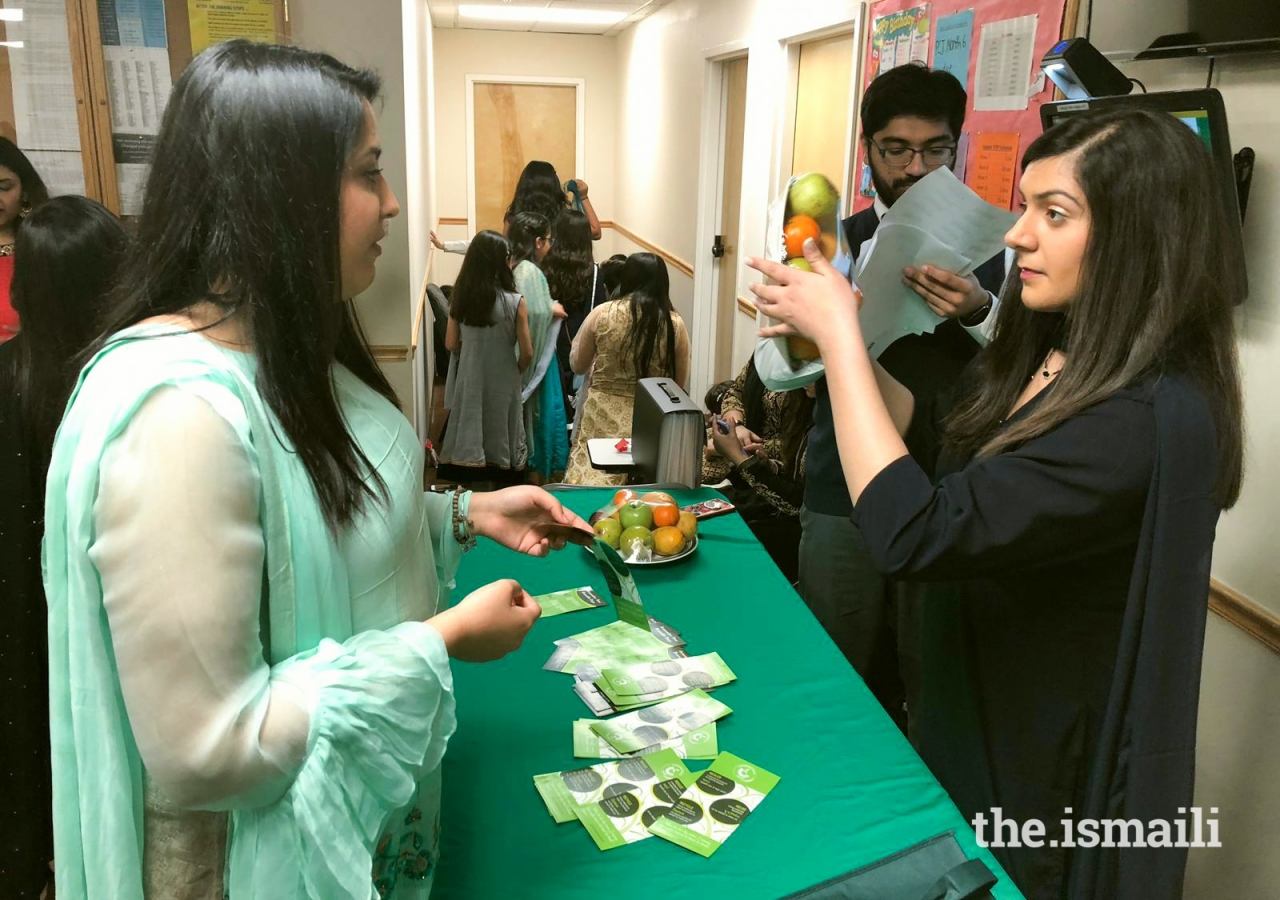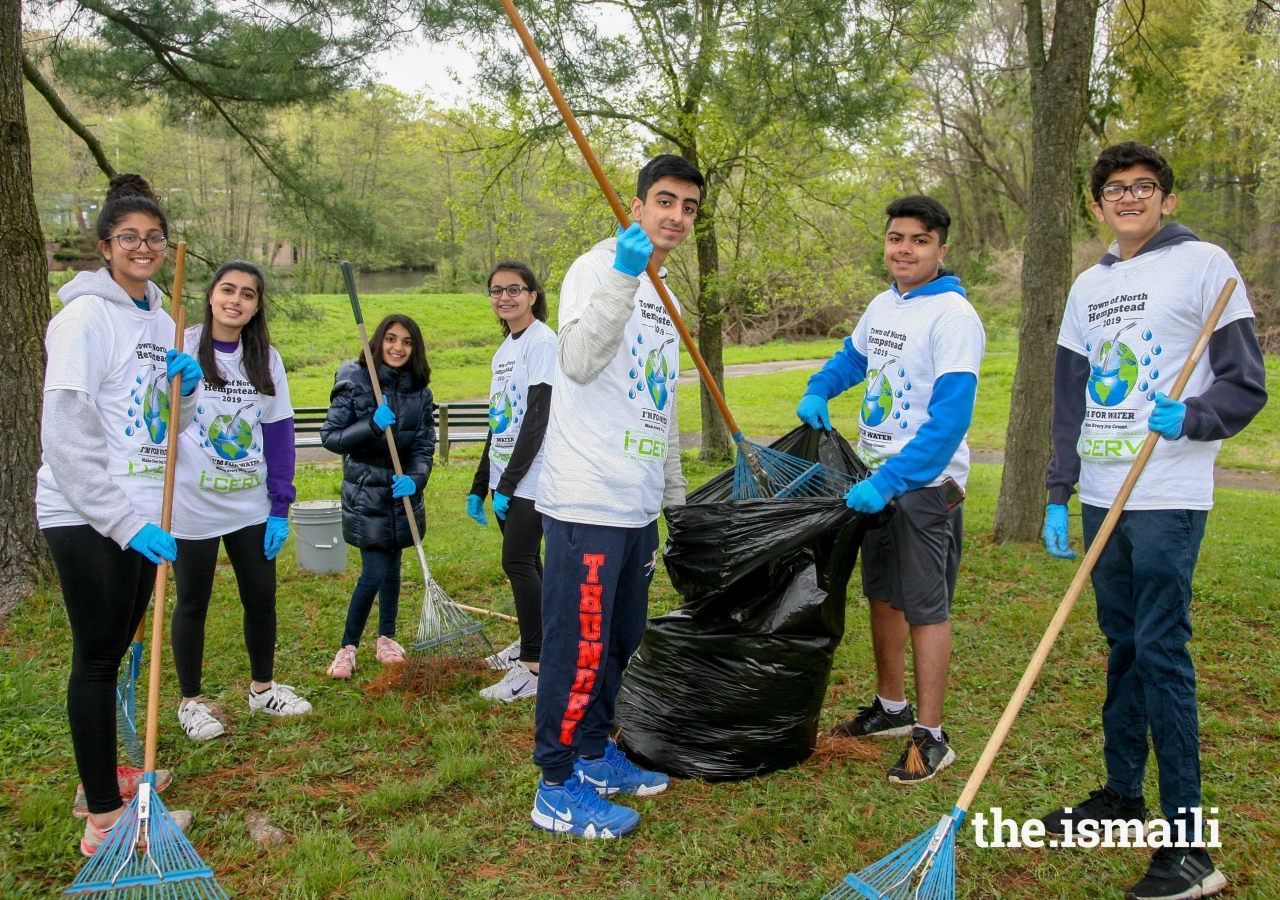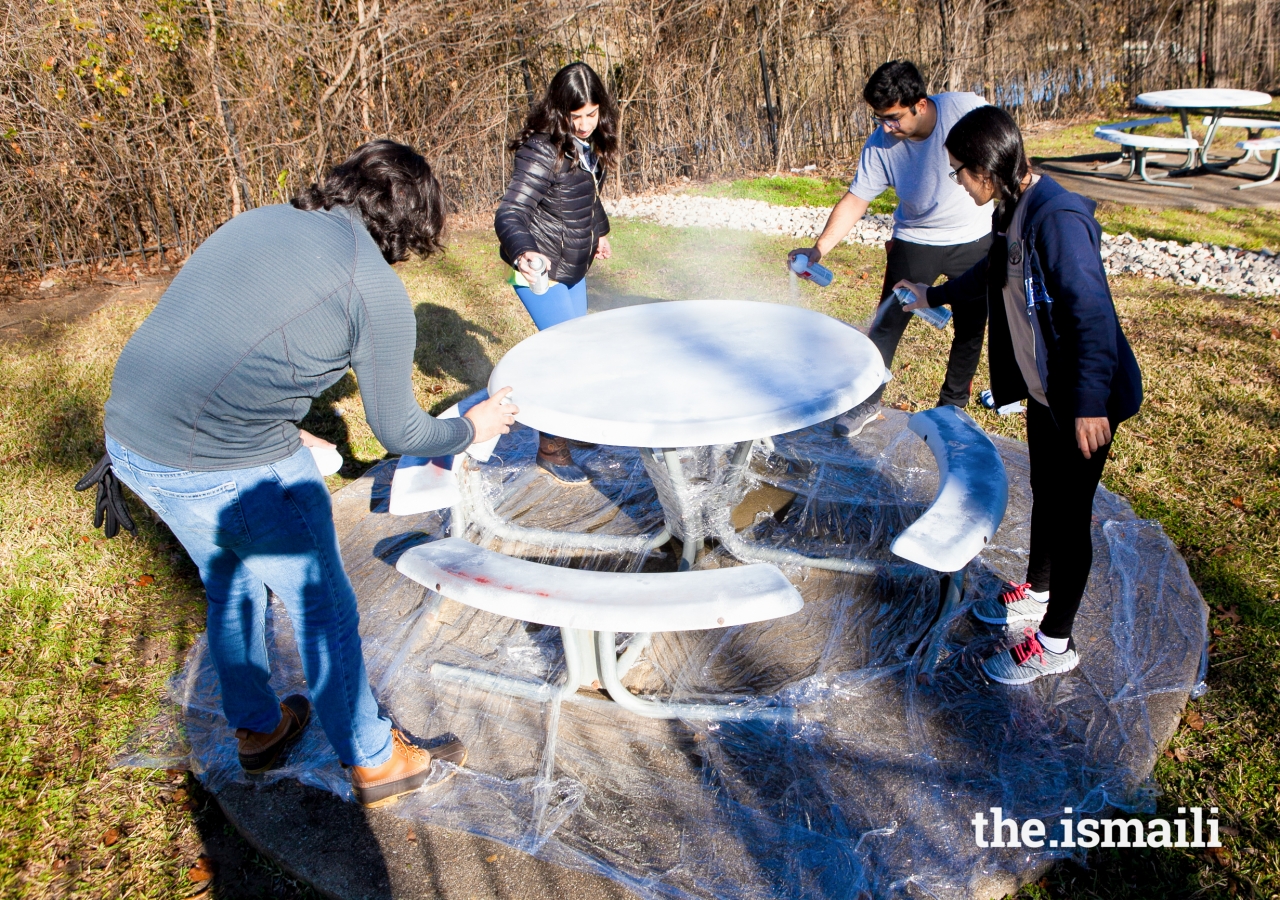The Holy Qur’an says, “It is Allah Who has made for you the earth as a resting place, and the sky as a canopy, and has given you shape and made your shapes beautiful and has provided for you sustenance.” [40:64]
Thankfully, more than ever before, there is interest in developing solutions to help curb the many environmental problems that have arisen due to our irresponsible actions. We now have many novel and more efficient technological solutions, such as the generation of clean renewable energy, advanced methods in recycling, and precision agriculture.
On the individual level, each one of us must understand how we are contributing to the destruction of our planet. Through awareness, education and action, our small steps can collectively lead to impactful changes. As such, Ismailis across the United States have taken steps to help sustain the planet for the future.
“Future generations will either remember us as the generation that destroyed its home, or the one that finally came to respect it.” Through these words, Munir Meghjani helped initiate Sustainable Nation, a program which has eliminated the use of plastic water bottles and plastic bags in Jamatkhanas across the United States.
Since 2014, this program, operated by the Volunteer Resource Management team, has kept thousands of pounds of plastics out of landfills by installing water filters, using reusable water jugs and fabric bags, and strategically placing recycling bins in Jamatkhanas. The cost savings that result are an additional bonus. Munir estimates that in just five centers in the US Southeast region, Sustainable Nation helps save $18,000 in the purchase of water bottles and $5,000 in the cost of plastic bags annually.
Reflecting on the journey, he says, “There were many challenges, from educating the volunteers and the Jamat on why this is important, to figuring out how to go about reducing, reusing, and recycling in Jamatkhana. We still have our challenges, but I am confident that we can overcome them. Also, I am intrigued by how we can encourage Jamati members to take these practices to their homes and places of work."
Adil Devshi helped implement the Sustainable Nation program. He said, "Thanks to the volunteers across the country who have made this incredible initiative a success. The impact of this program will be felt generationally and [Sustainable Nation] has really put the spotlight on climate change.”
Younger children are also being educated in using science and technology to help with sustainability. Each summer, thousands of Ismaili students in the United States look forward to Camp Mosaic. While camp organizers have incorporated environmentally sustainable practices over the last few years, including recycling and composting, this year, they decided to go beyond these practices.
Umer Rupani, Chief of Staff for Camp Mosaic, said, “We wanted to instill in the counselors and campers the value of sustainability, but not just by encouraging them to recycle while at camp, but by teaching them why, and how, so that they can take what they learn at camp and make it a part of their lives, and maybe even turn it into a future career.”
Several regions incorporated environmental sustainability into the camp curriculum by focusing on the consequences of climate change, educating about energy consumption, and encouraging urban farming, and sustainable city planning. At the 2019 Camp Mosaic, 6 to 13 year old campers were taught how they can help the environment by incorporating “green” practices into their daily lives, with the ultimate goal of reaching carbon neutrality.
At the camp in Atlanta, counselors heard from Councilperson Kirkland Carden of the City of Duluth, and City of Clarkston Mayor Ted Terry, who is also the Director of the Georgia Sierra Club. These officials shared technologies and practices through which their cities maximize environmental sustainability, when planning transportation, public safety, and economic development projects.
Camp Mosaic counselors used this knowledge to help their campers brainstorm novel ways to make our communities more sustainable. These ideas were developed and refined throughout the duration of the camp, and then pitched in a “Shark Tank” style competition, in front of Councilperson Carden, Mayor Terry, and other judges.
Aside from these large scale, nationwide programs, I-CERV (Ismailis Engaged in Responsible Volunteering) volunteers across the United States have participated in many service projects focused on the environment, including planting trees and beautifying parks.
Asma Jaria has helped organize some of these I-CERV projects through the Youth and Sports Board. She said, “climate change poses one of the biggest long-term threats to our planet. Therefore, it is becoming increasingly imperative for us as a Jamat to practice environmental stewardship and be advocates for a sustainable lifestyle.”
Over the last couple of years, college students have participated in Alternate Winter Break, where they engaged in service-learning initiatives, including those that help the environment. A group of such students worked at Truly Living Well, an urban farm in metro-Atlanta that promotes organic farming by training the local community.
Earth Day provides the perfect opportunity to show support for environmental protection. This year, over 100 volunteers from Long Island, New York, worked alongside city and state officials to beautify Whitney Pond Park. This is the same park that was hit by Hurricane Sandy in 2012, and at that time volunteers from the Jamat had planted trees to replace those that had been damaged.
Laila Hudda is an Environmental Engineer at the Environmental Protection Agency. While her day job is to work towards policies and programs that aim to protect the environment, she recently participated in a similar I-CERV beautification event at Medlock Park in Decatur, Georgia.
Laila says the following, about this initiative: “It is great to see that the Ismaili Muslim community is becoming more conscious of the global environmental calamity, and is striving to understand and engage in the conversation. I-CERV events like park clean-ups help educate youth on the importance of trash-free neighborhoods and green spaces. These activities serve as a reminder of our duty to care for Allah’s creation and encourage environmental stewardship in all areas where we live, work, play, and pray.”

